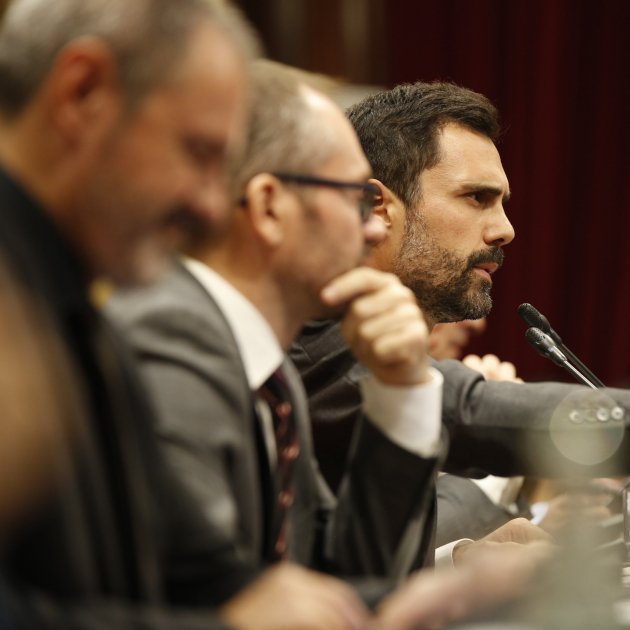Another disobedience trial looms. The Catalan High Court (TSJC) announced today that it is sending to trial the former speaker of the Catalan parliament and current business minister, Roger Torrent (ERC), along with three ex-members of parliament's procedural bureau, Josep Costa, Eusebi Camdepadrós (both Junts) and Adriana Delgado (ERC) for an offence of serious disobedience of the Spanish Constitutional Court in 2019 for allowing two votes, on a motion related to the Catalan sovereignty and another criticising the Spanish monarchy. The prosecution announced months ago that it is demanding a 20-month ban on holding public office for the first three mentioned, and a 14-month ban for Delgado, who only took part in one of the two decisions. The Vox party is also pursuing the matter, via a private prosecution as permitted under Spanish law, and it demands identical bans on office holding. The next step is for the lawyers to present the defence briefs and for the court to set the date for the trial, the second against the members of a Bureau of the Catalan Parliament for disobedience.
"As usual, we have heard this news through the media. One more demonstration of a judicial system more concerned with persecuting liberties than with guaranteeing them," tweeted the minister Torrent. Last week, the appeals chamber of the court informed the politicians that their appeals against the judges' decision last November has been dismissed, opening the way for the trial. In the ruling, the court maintained that the defendants' claims - on the inviolability of the Catalan parliament, that the court assigned was not the one predetermined by law and that the facts have no criminal relevance - could "not be answered at this procedural moment", only whether the investigating judge has carried out his procedure correctly, which the appeal courts does ratify.
Sentences demanded
The sentence demanded by prosecutors - 20-month bans on holding public office for Torrent, Costa and Campdepadrós - are the same penalty awarded against several members of the previous Catalan parliamentary Bureau, for allowing the voting on the Laws of Disconnection from the state, as part of the planning for a possible "yes" result in the 2017 independence referendum. However, on that occasion, the speaker of Parliament, Carme Forcadell, was found guilty of sedition and sentenced to 11 and a half years' prison, and pardoned after serving nearly four years. In addition to the disqualification sentences, the prosecution demands that Torrent, Costa and Campdepadrós be fined 30,000 euros and Delgado, 24,000 euros.
The disobedience accusation relates to their decision to admit for processing and allow a debate on the text of two resolutions, on 12th and 26th November, 2019. The first contained a commitment to the exercise of the right to self-determination, while the second, a resolution in response to the Supreme Court's verdicts in the pro-independence leaders' trial, reiterated the chamber's disapproval of the king. The prosecutors made reference to the Constitutional Court decision of December 2nd, 2015 which had declared unconstitutional earlier resolutions of the Catalan parliament, suspended those resolutions and reminded the Bureau of its duty "to prevent and paralyze any parliamentary initiative that would mean ignoring or evading the agreed suspension", with possible criminal responsibility if they failed to do so.
